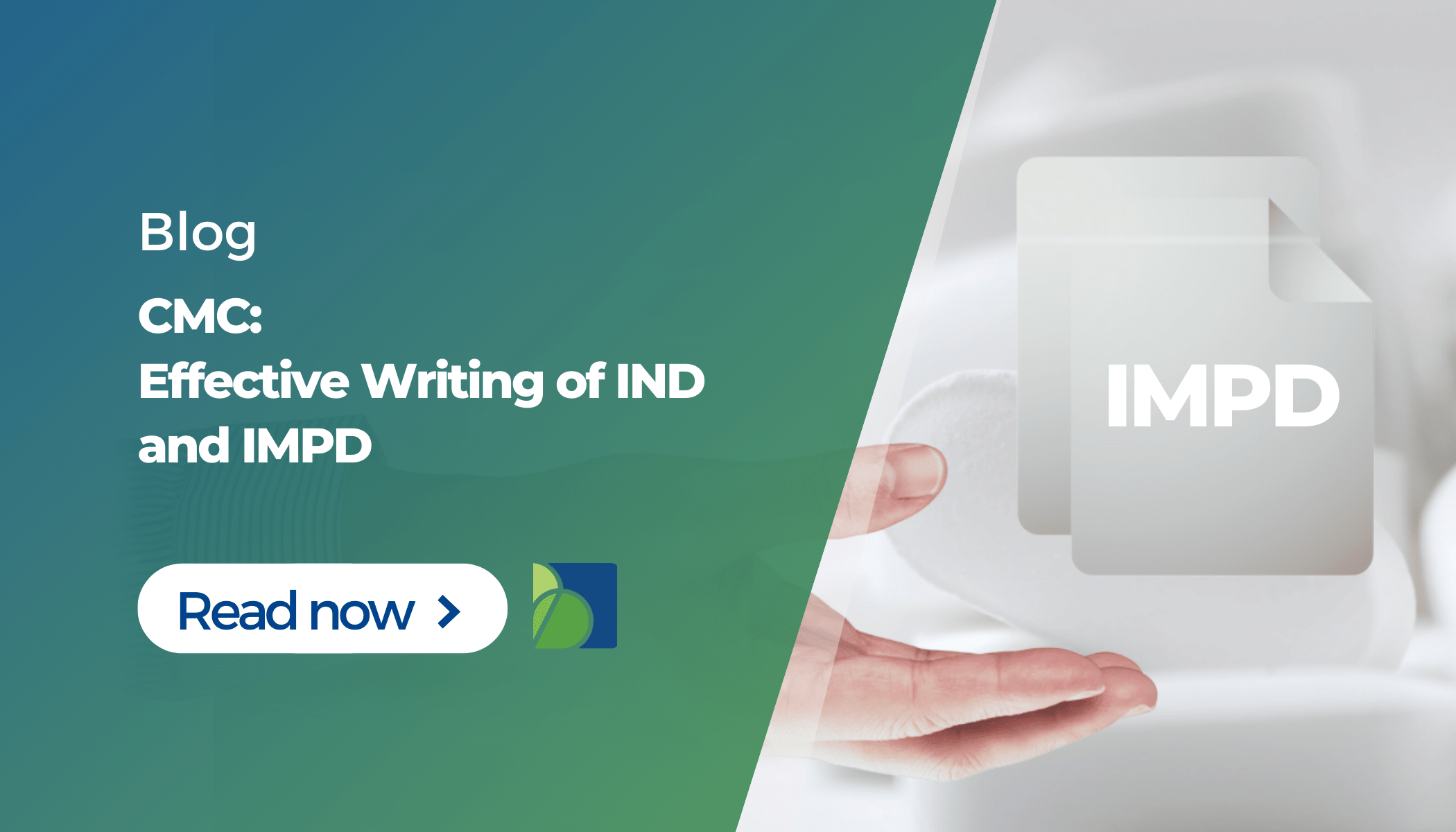Do we truly know how to ensure a well-written IND or IMPD Quality (CMC) part? Consistent and clear technical language? How to effectively manage the writing process? Biomapas can help you answer these questions and to set up the initial IND/IMPD required to start clinical investigations in humans. This article focuses on providing insight into the key features and practical advice in CMC and effective writing of IND and IMPD.
- Investigational New Drug (IND) application is the document to be submitted to the FDA to obtain regulatory approval to start clinical trials in the United States.
- IMPD is a part of the Clinical Trial Application to be submitted to regulatory authorities within the European Union to receive approval to start clinical trials in a concerned Member State(s), where you are planning a clinical trial.
- CMC stands for Chemistry, Manufacturing, and Control. We use this term to describe the chemical properties of a molecule or compound of the medicinal product, its manufacturing, and analytical control testing. CMC is an interchangeable term for Quality.
- CMC writing is a standardized scientific and technical writing process to develop the documentation needed to support regulatory interactions and filings for CMC.
Dedicated team for CMC and effective writing of IND and IMPD.
So, where should we start? Firstly, we have to define the team to understand if the organization can do CMC writing in-house or outsource these activities.
Thus, who usually does CMC writing? That very much depends on the organization. Commonly, the CMC regulatory people being the most suitable choice. In case the organization does not have such positions, CMC writing can be moved to R&D – individuals responsible for R&D documents technical writing, or Subject Matter Experts (SMEs) within an organization, or even QA/QC staff. Those people should have high-grade writing skills, write clearly, accurately, and meet expectations of writing style expected by agencies. Also, as a minimum, they have to have completed technical writing training, IND/IMPD quality part structure, and regulatory requirements.
CMC document writing requires close collaboration among multiple technical teams. Therefore, once you identified the responsible side for effective IND/IMPD writing, careful planning, and organization of writing activities and agreed rules of communication are mandatory for the liable team.
Fundamentals of CMC writing process
The project manager or CMC lead usually leads the CMC writing activities. Besides knowledge of CMC operational activities, this person should have the ability to interact, cooperate, and motivate the team across the departments and functions. In case CMC writers are not a part of the organization, where the process is developed, i.e., CMO, or CDMO, then all process requires even more efficient project management. A well-defined IND/IMPD preparation plan should be in place, and the content agreed upon with all stakeholders in advance: data providers, CMC writers, and reviewers. The lead should communicate document-specific timelines to all team members among organizations and ensure the achievement of wanted deliverables on time and ensure confirmed CMC writer’s availability.
Thus, CMC and effective writing of IND and IMPD requires skilled and experienced people with relevant backgrounds who understand and interpret the scientific data, know the regulatory requirements, and identify gaps and discrepancies.
To summarize, there are several factors affecting IND and IMPD writing, but having a dedicated and trained team for CMC is essential. Otherwise, inconsistencies and loss in Quality are guaranteed. If the organization doesn’t have the needed capabilities or has them only partly, outsourcing these activities should go without saying. Besides, the IND/IMPD preparation plan should be agreed upon with all the stakeholders in front to ensure clear communication and effective management.












